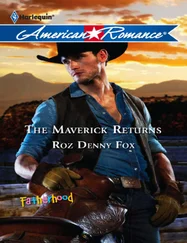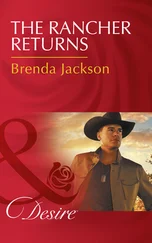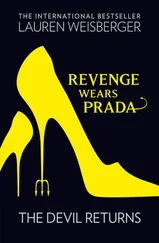While he was telling her off, he did, yes, break some things, but they were his things. The tears he shed were tears of rage. Now his goddamned kids wanted him to go see a doctor.
That’s what a man gets for speaking the truth. Nothing. Fausto Geraci was a man with nothing good in his life except for his two granddaughters and a Mexican woman who lived in a trailer and barely knew a thing about him. And now the girls were gone. He drove them to the train station himself and saw them off with a big wave and cheerful good-bye. His son and that woman didn’t even look back, and neither did the older girl. But Bev turned around, unhunched her shoulders, and blew him a kiss. What a smile! She should smile more, that Bev.
The trip to the train station had made him miss his lunch with Conchita. He didn’t feel like taking his drive either. He went home to his empty house. He could have been alone anywhere, but he was used to that patio. It was only a matter of time, he thought, before Conchita vanished, too. Fausto Geraci looked out at his pool. One more Chesterfield King, maybe two-three at the most-and then he’d drain that goddamned thing for good.
Historians and biographers have often noted that every bold decision of Michael Corleone’s formative years was made in opposition to his father. Joining the Marines. Marrying a woman like Kay Adams. Joining the family business while Vito Corleone was in a coma and helpless to prevent it. Entering the narcotics trade. Some sources have even suggested that Michael Corleone used his father’s death as an excuse to go to war with the Barzinis and the Tattaglias sooner than Vito Corleone had thought prudent.
The first breach in this pattern may have been Michael’s decision to keep Nick Geraci alive. Whatever one might say about the consequences of that decision, it was exactly what his father would have done, for four reasons.
First, naming Geraci the capo of Tessio’s old regime had, as Michael expected, put to rest any lingering resentment over Tessio’s unfortunately necessary execution. He was popular with the men on the street, who had no idea he was O’Malley, who merely thought he’d been in Tucson opening up new business ventures, which Geraci in fact had done. The Corleones had a few shylocks up and running, owned a bar and grill and a police captain, and had tapped into a source for marijuana that was protected by a former president of Mexico.
Second, every reason to be wary of Geraci had been tempered or eliminated. Even if Chicago, Los Angeles, or San Francisco never sent someone to kill him, he’d be worried about it, which would rein in his aggressiveness. He seemed deeply, sincerely grateful to Michael for ensuring his protection after Forlenza’s ridiculous kidnapping stunt, setting him up in Tucson, and engineering his return to New York. And now that Narducci was poised to take over in Cleveland, Geraci’s ties to Forlenza were of little concern.
Third, Geraci was a great earner. His every human transaction leaked gold.
Fourth, Michael Corleone needed peace. His organization was not the U.S. Marine Corps. He had neither enough nor good enough personnel to wage war indefinitely. Keeping Geraci alive helped Michael cement the perception that Louie Russo was to blame for that crash, a key component of the peace agreement formalized at that first summit meeting in upstate New York.
So why the need for a second meeting? Why the need to hold such meetings annually? And why hold them in the same location?
The men who assembled for the first time in that white clapboard farmhouse certainly had no compelling reason to agree to reconvene there the following year (and, indeed, the 1957 meeting, by all accounts, was a routine affair, almost certainly unnecessary, a historical footnote to the 1956 meeting and the fateful one in the spring of 1958). The issues they had come to discuss and resolve had been discussed and resolved. The peace struck that day was historic and enduring; to this day, there has not been an outbreak of violence between Families comparable to the 1955-1956 war (or to the two that preceded it, either, the Five Families War of the 1940s and the Castellammarese War of 1933). There was no precedent for scheduling such a meeting; all previous summit meetings had been convened only in direct response to existing problems.
The decision to hold these meetings annually was made not at the 1956 meeting but soon thereafter. None of it would have happened if it weren’t for the sudden turn in the weather and, more so, that gargantuan pig.
Michael had intended to leave immediately after all the business had been transacted. But for hours, the windows had been open. For hours, the aroma of that roasting pig had wafted in, working its succulent magic. Clemenza-like most everyone else there-was hardly the sort of man who’d leave on a long drive without having a slice or six. The garlic bread was good enough to make grown men weep, if not these particular grown men. Still: great bread. Also there was pie. A humble but inviting feast on what, propitiously, turned out to be the first warm day of spring. Men lingered. To have done otherwise would have been an infamità.
Michael Corleone felt an icy hand on the back of his neck. “I can’t eat pork,” Russo said. His voice was barely lower than Michael’s three-year-old daughter’s. “Breaks my heart. But if I eat it,” he tapped his chest, “it’ll break it worse. A word with you before I go?”
They went for a walk together across the lawn as the other men dug in. Russo’s consigliere went to get the car.
“I didn’t want to say this back there. I’m new. The new man should shut up and listen.”
Michael nodded. Russo had actually talked plenty at the meeting.
“I’m not an educated man such as yourself,” he said in that odd, high voice, “but I’m confused about something. When you were talking at the end there about change, you lost me.”
“I have no interest in telling others how to run their business. But there will come a time when others will take control of street crime, the way Italians took over from the Irish and the Jews. Just look at the Negroes, who in some cities are gaining more power every day.”
“Not Chicago.”
“In any case, I see no point in our amassing greater power and prosperity if we don’t use it to move out of the shadows and into the light. And that’s what I intend to do.”
Laughter echoed in the dusk. Sitting on a big rock beside the tent, Pete Clemenza and Joe Zaluchi, related through the marriage of their children, were holding court and telling stories.
“You’re losing me again with the shadows and light.”
Michael started to explain.
“No, no, no,” Russo said. “Don’t talk to me like I’m stupid. ”
Michael did not apologize or acknowledge the petty outburst, which was shocking in a Don, even one from Chicago.
“I’ll put it to you like this,” Russo said. “You talk about how one day our kids can be congressmen, senators, even president, yet we got fellas like that on our payrolls.”
“Never a president,” Michael said, thinking of the Ambassador, and thinking not yet.
“Not yet,” Russo said. “Don’t look at me like that. I know you talked to Mickey Shea. You think you’re the only one he’s making deals with?”
Several Dons were looking their way. The last thing Michael needed was to have anyone think he was plotting something. “We should get back,” he said.
“I’m not getting back, remember?” Russo said. “I’m going. Look, all I’m trying to say is that, at least in Chicago, we elect who we want, and once they’re in office we get out of them what we want to get out of them. Even the ones we don’t control are controlled by someone. ”
Читать дальше











